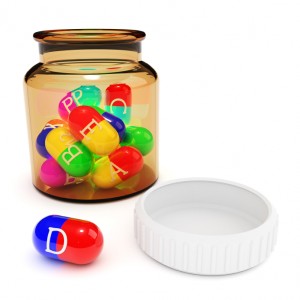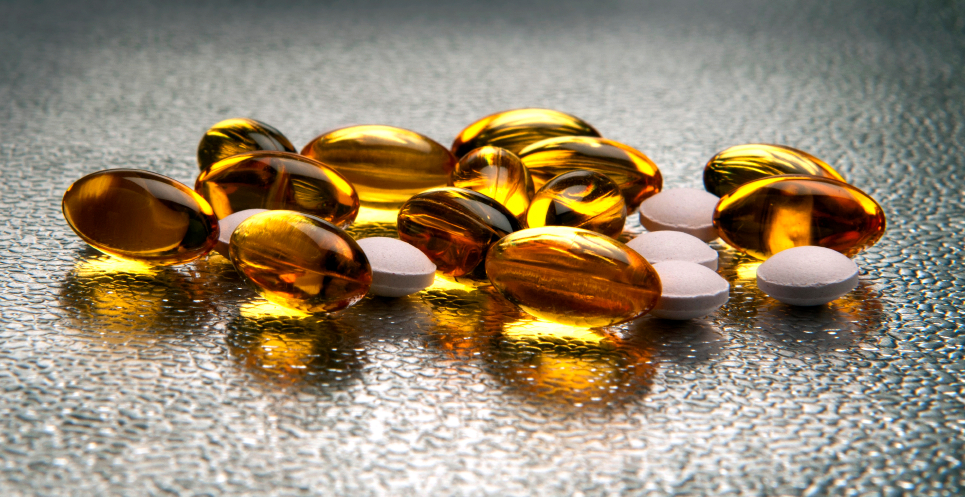Exercise Helpful for Mood Disorders
 While past research on mood disorders has targeted structural and functional abnormalities in the brain, newer research has considered targets such as inflammation, metabolism, and cell resilience. Exercise can have positive effects on systems that regulate metabolism, immune function, and cellular respiration, and therefore improve affective and cognitive difficulties.
While past research on mood disorders has targeted structural and functional abnormalities in the brain, newer research has considered targets such as inflammation, metabolism, and cell resilience. Exercise can have positive effects on systems that regulate metabolism, immune function, and cellular respiration, and therefore improve affective and cognitive difficulties.
At the 2014 meeting of the International Society for Bipolar Disorders, Mohammad Alsuwaidan presented a meta-analysis of the effects of exercise in mood disorders gleaned from English-language studies between 1966 and July 2008. Exercise increased brain norepinephrine, serotonin, and phenylethanolamine (PEA).
Alsuwaidan believes runner’s high, the feelings of euphoria people often experience after strenuous exercise, may not be linked to opiate (or endorphin) release, as most people believe, but instead to release of PEA or the cannabinoid anandamide, which activates CB 1 cannabinoid receptors, decreases GABA, and increases dopamine in the nucleus accumbens, the reward center of the brain.
Exercise also increases neurogenesis and the production of brain-derived neurotrophic factor (BDNF), which supports the growth of neurons and synapses. Marathon runners also have a post-race elevation in the anti-inflammatory cytokines IL-10 and IL-1Ra.
In people who are out of shape, exercise increases oxidative stress and other toxicities that do not occur with in those who exercise more regularly. Alsuwaidan extolls the benefits of high impact exercise five to seven times per week, and engaging a trainer to encourage exercise. Four minutes of intense exercise (such that you sweat and are not able to talk) is about equal to 45 minutes of mild exercise.
The Importance of Folate in Bipolar Disorder
Researchers are exploring the therapeutic potential of nutraceuticals, or nutritional treatments. Folate, also known as folic acid or vitamin B9, is one of the most important nutritional elements for mental health.
The folate found in foods such as dark leafy greens must be broken down further in order to be used in the body. Folate first breaks down into dihydrofolate (DHF), which is turned into tetrahydrofolate (THF). At the 2014 meeting of the International Society for Bipolar Disorders, researcher J.H. Baek described a pathway by which THF is turned into a form called 5,10 MTHF, which is turned into a form called 5 MTHF. 5 MTHF is important for the function of the enzyme tryptophan hydroxylase and for clearing homocysteine, an amino acid that is cardio- and neuro-toxic.
L-methylfolate, the active ingredient in the medication Deplin, is an already-broken-down form of folate that the brain can use more readily than the folate from food. L-methylfolate is converted directly to 5 MTHF, so it is effective in 15% to 35% of the normal population who have a deficiency in the enzyme MTHF reductase, which converts THF to 5 MTHF. One genetic variant (a C to T allele variation 677) that results in one type of deficiency in MTHF reductase has a 42% incidence among Asians, 34% among Caucasians, and 8% among Africans, and these individuals would benefit from l-methylfolate.
Folate and Medications for Bipolar Disorder
Certain medications lead to deficits in folate, so patients should consider taking a nutritional supplement.
The anticonvulsant drug lamotrigine inhibits the conversion of folate to DHF and DHF to THF, so folate supplementation is a good idea for those patients taking lamotrigine.
The mood stabilizer valproate inhibits the conversion of toxic homocysteine to methionine and then to s-adenosyl methionine (SAMe), which acts like an internally-produced antidepressant. Thus valproate increases homocysteine, and patients on valproate should be routinely treated with folate and vitamin B12 to help lower homocysteine levels in the blood.
Folate supplements are recommended for depressed patients who are having an inadequate response to antidepressants, since the nutrient helps antidepressants work better even when patients do not have a folate deficiency. Researcher Andrew Stoll recommends folate (1mg for women and 2mg for men). However, those patients who have one of the genetic conditions that leads to a deficiency in MTHF reductase should take l-methylfolate instead of regular folate. Researcher Mauricio Fava and colleagues showed that l-methylfolate at doses of 15mg (but not 7.5mg) was more effective than placebo in patients with unipolar depression.
Vitamin D Important for Brain Function, and Often Deficient
Vitamin D plays an important role in many brain functions, including synapse creation, calcium signaling, reduction of free radicals, neurotransmitter production, immune regulation, and brain development. Deficiencies in vitamin D have been linked to depression and schizophrenia. Some research has suggested that vitamin D supplementation can improve depressive symptoms, but there is still debate about a possible role for vitamin D in treating bipolar disorder.
At the 2014 meeting of the International Society for Bipolar Disorders, researcher Baseok Cha discussed the importance of vitamin D supplementation in bipolar patients, who often have deficient or insufficient levels. People receive 50 to 90% of their vitamin D from sunlight, and the rest from diet and supplements. Too much sunscreen can be a problem if it prevents a person from receiving enough vitamin D from sunlight.
The type of vitamin in supplements, D3, is converted to 25 hydroxy vitamin D in the liver, and then to 1,25 hydroxy vitamin D in the kidney. Levels of 25 hydroxy vitamin D below 20 indicate deficiency while levels between 20 and 29 indicate insufficiency. Low levels of 25 hydroxy vitamin D3 in newborns is a risk factor for schizophrenia, and vitamin D supplementation reduces this risk. Fish oils increase vitamin D, and it is possible that some of the therapeutic effects of omega-3 fatty acids in depression relate to vitamin D.
Two out of four recent studies of vitamin D supplementation have been positive, the last by Khoraminya et al. in the Australia and New Zealand Journal of Psychiatry in 2013, in which daily doses of 1,500 IU were used. Cha et al. found significantly lower levels of 25 hydroxy vitamin D in a Korean study of 21 patients with schizophrenia, 86 patients with bipolar disorder, and 42 patients with depression (mean levels about 15 µg/ml) compared to 31 controls (mean levels about 20 µg/ml).
A Possible Explanation for Vitamin D’s Antidepressant Effects
 Vitamin D plays an important role in the nervous system, regulating the production of neurotrophins, calcium channels, and calcium binding proteins, and it may have antidepressant effects. Researchers are learning more about how the vitamin’s effects take place.
Vitamin D plays an important role in the nervous system, regulating the production of neurotrophins, calcium channels, and calcium binding proteins, and it may have antidepressant effects. Researchers are learning more about how the vitamin’s effects take place.
At the 2014 meeting of the International Society for Bipolar Disorders, Yilmazer et al. reported that vitamin D treatment increased the production of glia-derived neurotrophic factor (GDNF). Neurotrophins like GDNF enhance the survival and growth of neurons. Since other neurotrophins (i.e. brain-derived neurotrophic factor (BDNF) and vascular endothelial growth factor (VEG-F)) are low in depression, vitamin D’s effect on GDNF could be important to its antidepressant effects.
Topiramate Added to Regular Treatment Helps OCD symptoms in Bipolar Disorder
Until now, there has been little research about treating obsessive compulsive symptoms in people with bipolar disorder.
In a recent four-month double-blind placebo-controlled randomized clinical trial presented by Sharaian et al. at the 2014 meeting of the International Society for Bipolar Disorders, topiramate was more effective than placebo at reducing these symptoms in patients with bipolar disorder when added to their regular treatment. Nine of 17 study participants responded to topiramate (53%), while only two of 16 responded to placebo (12.5%).
Editor’s Note: These findings add to the list of comorbidities that topiramate may help with, even though it does not have any efficacy in the treatment of mania itself. Topiramate has helped with avoidance of cocaine and alcohol, bulimia and weight gain, anger attacks, and now obsessive compulsive disorder (OCD). Topiramate is also FDA-approved for migraine prevention in adolescents and adults.




